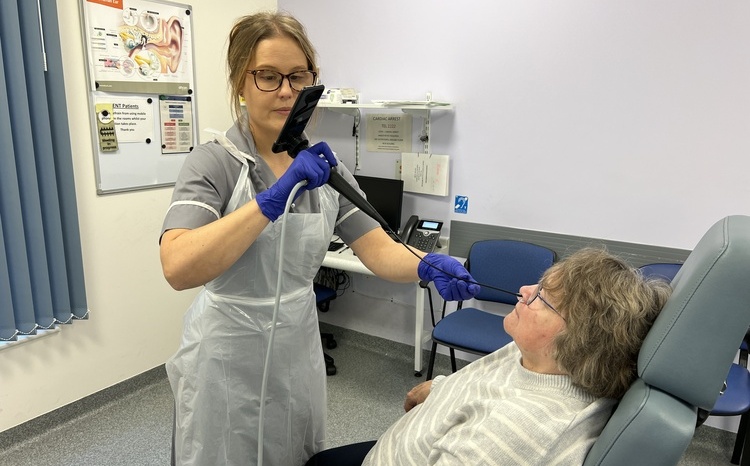Leeds med students given iPhones
- 27 September 2010
 More than 500 medical students at the University of Leeds have been given iPhones so they can access progress files, assessment modules and educational tools as part of their studies.
More than 500 medical students at the University of Leeds have been given iPhones so they can access progress files, assessment modules and educational tools as part of their studies.
The university, which says it is the first medical school to provide all of its undergraduates with the iPhone 3GS, will load the devices with a range of dedicated apps.
These will allow students to record casenotes while on the wards, view key medical text books, and access up to date guidelines on issues such as administering prescription drugs.
It is also hoped that the phones will allow students to keep in regular contact with the university from NHS hospitals, GP surgeries and community health clinics, and provide them with internet access from their student accommodation.
Dr Richard Fuller, director of the University of Leeds medicine and surgery course, said: “Patient safety has been our primary aim in this development.
"By linking workplace learning and assessment in mobile technology formats, we have a groundbreaking opportunity to provide instant, timely and detailed feedback to students in practice from patients, peers and clinical staff.
“By recording this feedback, it allows students to review, plan and ‘feed-forward’ with tutors to ensure their development as safe, effective doctors.”
Students will not be able to access confidential patient databases. Any case notes that are added to the smart phone will be anonymised.
In addition, any phones that are lost or stolen will be wiped and disabled remotely – and students will have to return the devices before they graduate.
Professor Trudie Roberts, medical education professor at the University of Leeds, said: “No other UK medical school is taking advantage of the virtual learning environment to such an extent.
“It is vitally important that medical students continue to develop their skills and record their progress when they are in practice, as well as when they are on campus.
"Mobile phone technology means that students can do this quickly and easily, wherever they happen to be working.”
The university is also hoping that the phones will help to improve infection control, since it is possible to wipe them with antiseptic wipes to remove germs.




